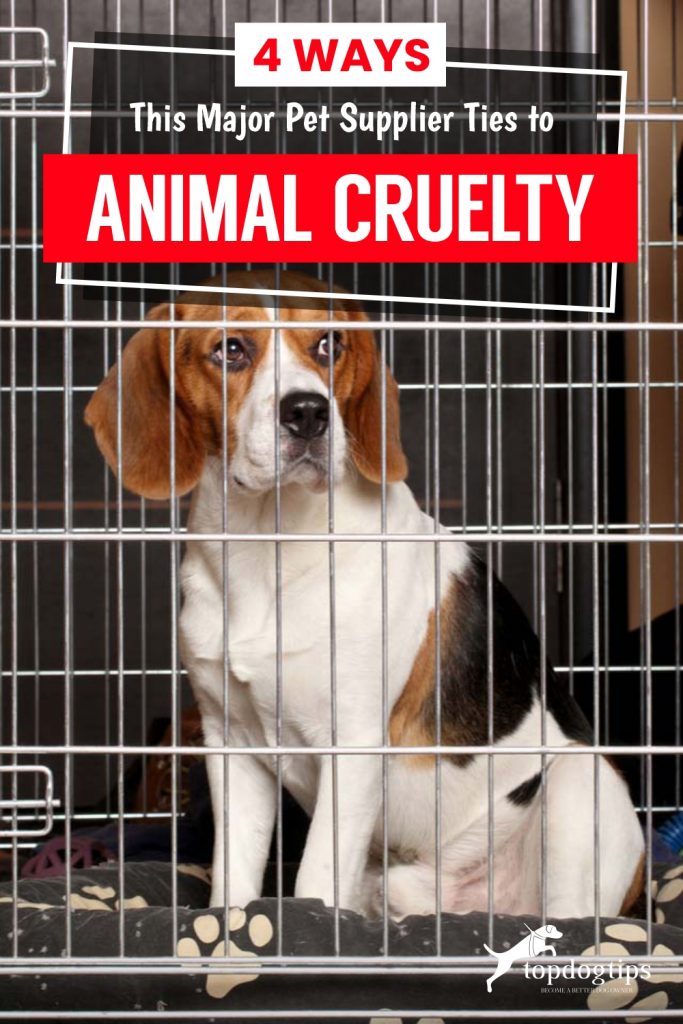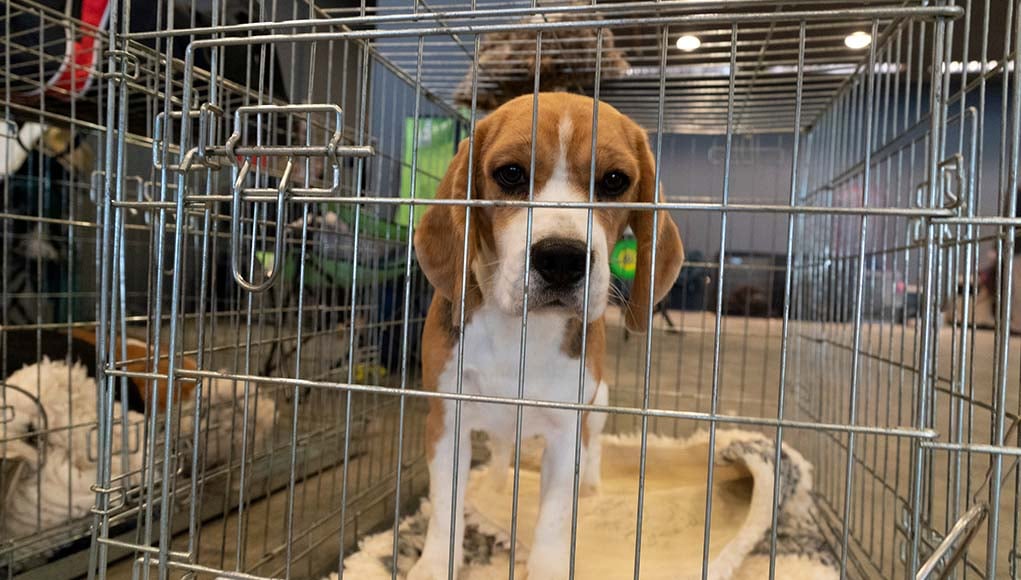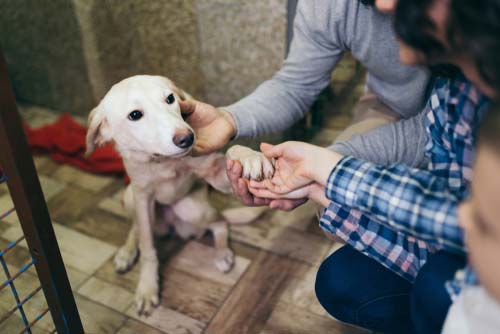Marshall Pet Products sells food, grooming, health items, toys, and other products for birds, cats, dogs, ferrets, horses, rabbits, and other common pets for the home.
Established in 1993, this company claims it offers natural solutions for everyday pet care.
However, an animal welfare group released an expose in 2018 accusing Marshall Pet Products of animal cruelty.
In its Cut the Cruelty campaign, Beagle Freedom Project's Rescue + Freedom Project (R+FP) detailed how the pet supplier has dark ties to animal tests and experiments.
Here are 4 ways this major pet supplier is actually supporting animal cruelty.
4 Shocking Things R+FP uncovered about Marshall Pet Products
1. Marshall Pet Products is under Marshall Farms Ltd, which also owns Marshall BioResources
According to the exposé, Marshall Pet Products is the sister company of Marshall BioResources, the largest supplier of animals used for experiments and research in the United States.
This company, which has its kennels based in New York, mainly provides Beagles to laboratories, but it also breeds ferrets, mini pigs, mice, and other animals for tests and experiments.
Marshall BioResources has existed since 1939—54 years before Marshall Farms Ltd decided to form the company to sell pet products.
2. It has violated the Animal Welfare Act
Marshall BioResources claims to be compliant with various laws and regulations on animal welfare, such as the U.S. Animal Welfare Act, the Office of Laboratory Welfare, and the Public Health Service (PHS) Policy on Humane Care and Use of Laboratory Animals.
But R+FP stated in its expose that a U.S. Department of Agriculture inspection into the facilities of Marshall BioResources in 2006 showed that it does not actually provide proper veterinary health care.
Many dogs rescued from the facilities had either injuries or medical problems.
Puppies were also found to be in a state of dehydration or ready to be euthanized. Worse, they were euthanized in front of the other dogs.
A representative from the company has divulged to R+FP that the conditions of the animals in the breeding facilities are similar to those in puppy mills.
3. Marshall BioResources breeds whatever the laboratories request
Apparently, the same point man from the company revealed that Marshall BioResources breeds animals in whatever condition or as the laboratories specified.
So, if the labs need a three-legged Beagle, they will breed such a dog regardless of the consequences to the animal.
This is what's called “purpose-bred” research animals, and sadly, it’s a common practice in the industry.
4. Marshall Pet Products has an annual $11 billion revenue
According to the Beagle Freedom Project, this pet supply company earns $11.6 billion annually from the pet toys, foods, and grooming products sold at many U.S. stores.
Unsuspecting buyers of these pet needs may not realize that whenever they buy items from Marshall Pet Products, they are helping fund its cruel breeding facilities based in the U.S., China, and Europe.
Taking Action Against Marshall Companies
R+FP President Shannon Keith has taken action against the Marshall companies.
She called Overstock.com to inform them of the unscrupulous practices of Marshall Pet Products’ sister company.
Appalled by the revelations, the president of the online store, Saum Noursalehi, agreed to remove Marshall products from its shelves; hence, you no longer find their items on Overstock.
Now, R+FP is hoping other online retail stores will follow suit.
A petition has been making the rounds, which asks Amazon to also consider canceling Marshall Pet Products in its store.
So far, nearly 110,000 people have signed the petition.
What You Can Do
This is just the first company R+FP has exposed for animal cruelty; more will be revealed after the group conducts its investigations.
Aside from signing the group’s petition for Amazon, you can also help the cause by advocating for animal welfare.
Educate
One of the best methods to help put an end to animal cruelty is to educate.
Spread the word on these causes on your social media pages.
At the same time, you may also share articles about the right way to care for animals, especially if you have friends and family members who might be considering adopting a pet.
Learn the Law
Animal cruelty laws are different for every state, and there could be special ordinances in your city that have special provisions about how animals must be treated.
If you learn the law, you'll also learn to recognize animal cruelty.
According to the Humane Society of the United States, cruelty against animals comes in two forms: neglect and direct harm or violence.
Some of the tell-tale signs of animal cruelty include leaving dogs outside during extreme weather, poor and dangerous living conditions, lack of food and water, wounds and untreated injuries, abandonment, and acts of violence.
Report
Animals don't have a voice, but you can give them a chance to be heard if you report any animal cruelty you witness in your community.
Take a stand and call the local animal control agency or a pet shelter if you have proof that humans are behaving poorly against animals.
If these individuals are reported, verified, and punished, there's a good chance that they will not abuse animals again.
Volunteer
Organizations like R+FP need the help of volunteers who will be on the ground saving these animals.
Contact an animal shelter in your area if you want to join its team.
What Happens When You Report Animal Cruelty
A citation might be issued once an officer investigates the complaint and speaks with the person involved.
First offenders are usually given the chance to correct what they did.
But if the person is a repeat offender or if there are indications of extreme abuse, then the animal might be taken into custody and housed at a shelter or humane group.
Once the case against the abuser is filed in court, you might have to testify as a witness, so be prepared and willing to help the dogs.
You can also follow up on the status of the case by calling your local courts, as these are usually in the public records.
Related Articles:
- Rock Star Teaming Up With Lawmakers to Fight Animal Cruelty
- California Humane Society Presses For Animal Cruelty Case Against Dog-Sitter
- Interview: Creating An Easy Way To Help Animals In Need















